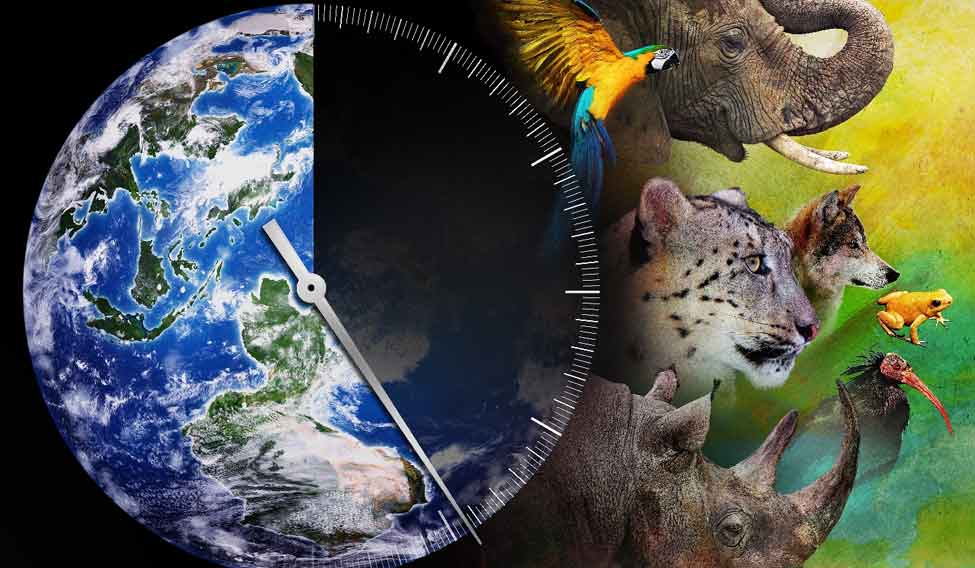It's supposed to be a top predator, high up on the food web. However, when it's fins are hacked off to flavour a pot of soup in some fancy Oriental restaurant, the limbless shark that's left struggling among the corals is hardly the magnificent, feared fish. It's more the pathetic creature that is struggling against all odds to stay alive. Many of them won't. And fin by fin, these sharks, which predate even the dinosaurs, are edging towards extinction, accelerated by human greed.
Racing Extinction, directed by Louie Psihoyos, the filmmaker who turned New York's Empire State Building to resemble Goddess Kali earlier this year to raise awareness about endangered animals, shows how humans are speeding up the natural process of extinction at such an alarming rate that in a hundred years, only half the species present on the earth will still be in existence.
The documentary, to be aired on Discovery Channel worldwide on Dec 2, focuses on two ways in which humans are accelerating extinction. One is a thriving, underground market where wild animal parts are smuggled to form ingredients in exotic cuisines and traditional medicine, and the other is the acidification of oceans caused by increasing carbon presence in the atmosphere.
The 90 minute documentary is a chilling view. It begins with scientists who have recorded the call of a bird. He's calling his mate. Only, there is no answer. For, he was the last of his species. Elsewhere, there's Joel Sartore, a National Geographic photographer who's compiling a photo ark, of animals that might not even be there for the next generation.
Psihoyos's team joins with activists who try to uncover the illegal trade in animal parts, and stumble upon building rooftops in China where shark fins by the thousands are dried before being packed off to the international market.
The documentary, which has some elements of activism in it, aims at shocking the viewer. And it does. The shock is supposed to force people into action, say to decide not be part of the demand that propels trade of animal parts. If watching the struggle of a scaled shark doesn't put you off the shark-fin soup, what will?
“There's still a lot left worth fighting for,” says Jane Goodall, chimpanzee researcher and conservationist.







